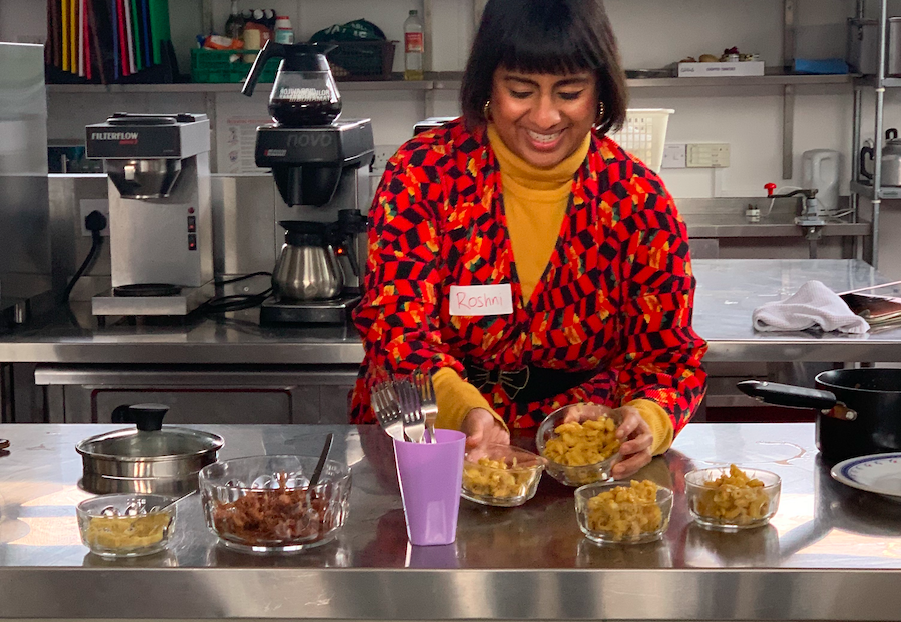On the 23rd and 24th February, Eastbourne Food Partnership hosted vegan community kitchen Made in Hackney for two Plant Futures workshops filled with inspiration, practical tips and some outrageously tasty Mac n ‘Cheese’.
From community kitchens to hospital catering, nutritionists to bakers, the wide range of backgrounds made for lively discussions. For fully-fledged vegans, vegan-skeptics and anywhere in-between, we could all agree that increasing the amount of plants on plates in Eastbourne was no bad thing.
Here’s what we learnt:
Plant-based food is not just for vegans
With research from nutrition science pointing to increased gut-health amongst those getting a decent variety of plants (30 per week, according to the American Gut Project research), even the most enthusiastic meat-eater could be benefiting from getting a few extra veggies in.
Handy tips from Made in Hackney’s team for generalising plant-based food include smart, ingredients- or origin-based titles in menus or cookery classes (think “Sweet potato Caribbean curry” vs “Vegan curry”, or “South Indian masterclass” vs “Vegan cookery class”).
Processed vegan meat substitutes are not the only way
A key challenge brought up by many of the participants was the amount of processed meat substitutes on the market. Luckily Made in Hackney’s whole-food approach to plant-based cooking was able to step in, with a wide range of inventive and practical ways to produce nutritionally balanced and tasty dishes without a fake-steak in sight. Not only are these whole plants healthier, they are also much more environmentally sustainable. Bring on the buckwheat!
Sometimes it doesn’t hurt to get sneaky with veg
We learnt some delicious tips for sneaking in veg into unsuspecting British favourites, sampling a deliciously creamy Mac n ‘Cheese’ with a sauce made from blended carrots, potatoes and tomatoes. You almost have to taste it to believe it (and luckily, the recipe is included in their toolkit, downloadable here).
Plant-based food doesn’t have to cost the world
Not only are emissions from plant-based foods 10-50 times smaller than animal products, but the average home-cooked evening meal is also less than half of one containing meat or fish. However, these virtues aren’t automatic, and thinking local and seasonal for your sourcing is key to reducing the environmental harm of your food (see Plant Future’s ‘How to Source Seasonally guide’ for inspiration).
We need more food skills and resources
Across the board, participants agreed that we can only move towards Plant Futures if communities have access to skills and resources to grow, cook and eat more plants: more land for community growing, more education and more community kitchens.
Eastbourne Food Partnership left the workshops more inspired than ever to create more inclusive and sustainable food systems for Eastbourne.
A huge thank you to Roshni and Sareta from Made in Hackney for their wonderful workshops. If you couldn’t make it to the session, you can download their Plant Futures toolkit, packed with recipes and top ingredients and sourcing tips, is available for download for free here.

